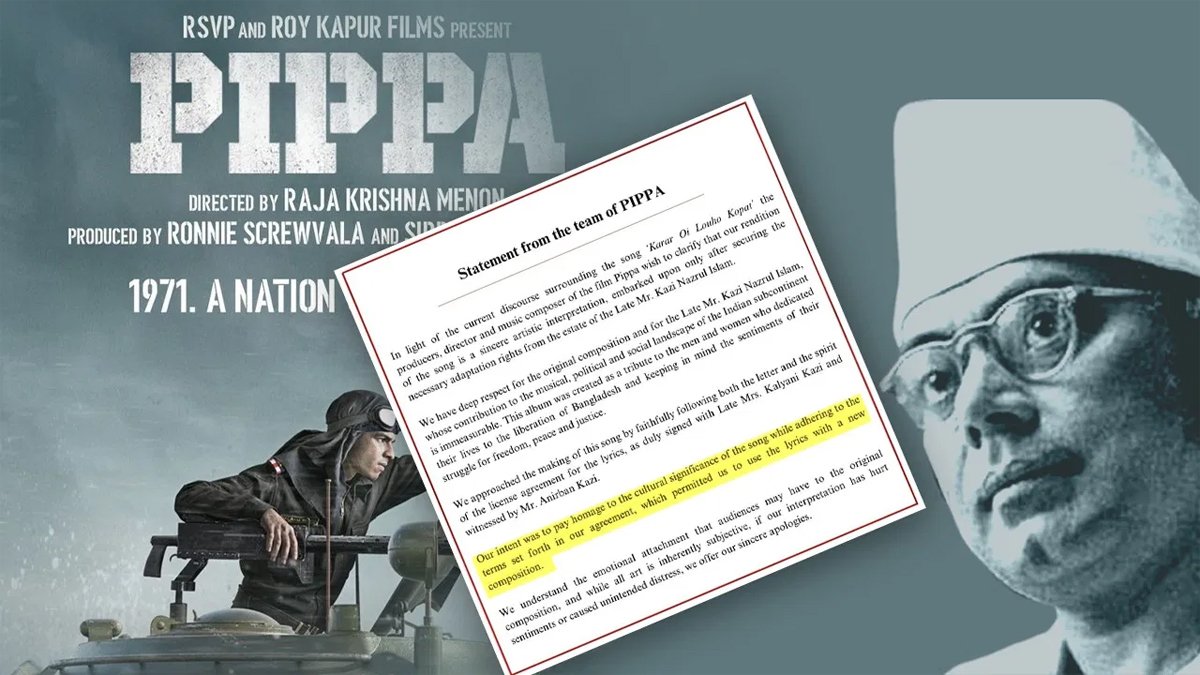The makers of Indian movie ‘Pippa’ have apologised to fans if they are hurt by AR Rahman’s remake of ‘Karar Oi Louho Kopat’ amid intense criticisms for changing the tunes of the song by Kazi Nazrul Islam. But the ‘Pippa’ team brushed aside allegations that they violated adaptation rights of the song in a statement posted on X by RSVP Movies on Monday.
RSVP and Roy Kapur Films are the producers of the Hindi biographical film on an Indian regiment that took part in Bangladesh’s War of Independence from Pakistan in 1971. Late Kalyani Kazi, daughter of Bangladesh’s National Poet Nazrul, signed the licensing agreement for the song. Her son Anirban Kazi was a witness to the agreement signed in 2021. Anirban said they had not realised an Oscar-winning composer like Rahman could “kill the song”.
In protest against the changes to the tunes of the song, Anirban demanded that the family’s name be dropped from the movie song’s creditline. His sister Anindita Kazi said she had come to know that her mother had given permission to use the song without changing the tunes. Kalyani would have been hurt had she been alive, said Anindita.
In response, the ‘Pippa’ team said in the statement: “In light of the current discourse surrounding the song ‘Karar Oi Louho Kopat’ the producers, director and music composer of the film Pippa wish to clarify that our rendition of the song is a sincere artistic interpretation, embarked upon only after securing the necessary adaptation rights from the estate of the Late Mr Kazi Nazrul Islam.”
“We have deep respect for the original composition and for the Late Mr Kazi Nazrul Islam, whose contribution to the musical, political and social landscape of the Indian subcontinent is immeasurable,” the statement said.
“This album was created as a tribute to the men and women who dedicated their lives to the liberation of Bangladesh and keeping in mind the sentiments of their struggle for freedom, peace and justice. We approached the making of this song by faithfully following both the letter and the spirit of the license agreement for the lyrics, as duly signed with Late Mrs Kalyani Kazi and witnessed by Mr Anirban Kazi.
“Our intent was to pay homage to the cultural significance of the song while adhering to the terms set forth in our agreement, which permitted us to use the lyrics with a new composition. We understand the emotional attachment that audiences may have to the original composition, and while all art is inherently subjective, if our interpretation has hurt sentiments or caused unintended distress, we offer our sincere apologies.”







